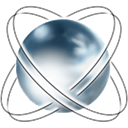Uncovering the Best Bedrock Linux Alternatives for Your Ideal System
Bedrock Linux is a fascinating meta-distribution, celebrated for its unique ability to blend components from various Linux distributions into one cohesive system. This allows users an unprecedented level of customization, from leveraging cutting-edge packages from Arch Linux to maintaining stability with Debian, all while ensuring broad software compatibility. However, Bedrock Linux's advanced nature isn't for everyone. If you're looking for a different approach to achieving a versatile and powerful Linux environment, exploring a Bedrock Linux alternative is a great next step.
Top Bedrock Linux Alternatives
While Bedrock Linux offers unparalleled flexibility, many other distributions provide excellent user experiences, stability, and access to a vast array of software. Here's a look at some of the top alternatives that might better suit your needs.

Ubuntu
Ubuntu is a widely popular, Debian Linux-based open-source operating system known for its user-friendliness and extensive community support. It's a fantastic Bedrock Linux alternative for those seeking a stable, well-documented, and broadly compatible system, particularly for desktop use. Available on Free, Open Source, Windows, and Linux platforms, Ubuntu features a robust APT package manager and strong security, making it a reliable choice for many users.

Debian
Debian is a foundational, free, and open-source operating system that serves as the base for many other distributions, including Ubuntu. If you appreciate the stability and reliability that Bedrock Linux can achieve by incorporating Debian components, then Debian itself is a strong Bedrock Linux alternative. It offers excellent stability, a powerful package manager, and low memory usage across Free, Open Source, Windows, Linux, Windows S, BSD, and Self-Hosted platforms, making it ideal for those who prioritize a robust and customizable base system.

Linux Mint
Linux Mint is a highly popular desktop Linux distribution, built on both Ubuntu and Debian, making it an excellent Bedrock Linux alternative for users who want a polished, out-of-the-box experience. It offers a Windows-like interface, is completely ad-free, and focuses heavily on user privacy. As a Free and Open Source Linux distribution, Linux Mint comes with built-in file managers, support for Nvidia drivers, and various desktop environments like Cinnamon and XFCE, appealing to a wide range of users.

Arch Linux
For users who appreciate Bedrock Linux's ability to access bleeding-edge packages and the Arch User Repository (AUR), Arch Linux itself is a direct and powerful Bedrock Linux alternative. This independently developed, free, and open-source Linux distribution is targeted at competent Linux users. It features a rolling release model, a minimalistic design, and the pacman package manager, providing a highly customizable and lightweight system that's always up-to-date.

Manjaro Linux
Manjaro Linux stands out as a user-friendly Linux distribution based on Arch Linux, making it a superb Bedrock Linux alternative for those who desire the power of Arch without its steeper learning curve. As a Free and Open Source Linux distribution, Manjaro offers the benefits of Arch's rolling release model and access to the Arch User Repository, combined with out-of-the-box usability and enhanced stability. It's customizable, lightweight, and supports Nvidia drivers, making it a versatile choice.

Fedora
Fedora, a free and open-source Linux distribution sponsored by Red Hat, provides a cutting-edge yet stable operating system. While Bedrock Linux lets you mix components, Fedora offers a cohesive, innovative experience that is often a testing ground for technologies that later appear in Red Hat Enterprise Linux. It's an excellent Bedrock Linux alternative for users who want a modern, out-of-the-box system with an in-built GUI and separated workspaces, all on the Linux platform.

elementary OS
elementary OS is a visually stunning and fast operating system based on Ubuntu, offering a macOS-like aesthetic and a focus on a distraction-free user experience. For those who admire the polished look and feel, this free and open-source Linux distribution is a compelling Bedrock Linux alternative. It supports Flatpak for easy application management, is configurable, and offers out-of-the-box usability with Debian package compatibility.

macOS
While fundamentally different in its proprietary nature, macOS, developed by Apple Inc., offers a Unix-based operating system with a highly integrated and refined user experience. If your interest in Bedrock Linux stemmed from a desire for a powerful, cohesive, and feature-rich operating system, macOS provides an alternative for Mac users. It's known for its privacy focus, Spotlight search, QuickLook file preview, and Voice Commands, though it's restricted to Mac hardware.

Xubuntu
Xubuntu is an elegant, easy-to-use, and lightweight operating system based on Ubuntu, featuring the stable and configurable Xfce desktop environment. For users who might have considered Bedrock Linux for its flexibility but now seek a lighter, more resource-efficient Ubuntu-based experience, Xubuntu is an excellent Bedrock Linux alternative. It's a free and open-source Linux distribution that offers a smooth experience even on older hardware, leveraging its Debian and Ubuntu heritage.

ReactOS
ReactOS™ is a free and open-source operating system designed to be compatible with applications and drivers written for Microsoft® Windows™ NT. While not a Linux distribution, if your interest in Bedrock Linux was partly driven by the need for broad software compatibility, particularly with Windows applications, ReactOS offers a unique alternative. It's a lightweight system with an NT kernel that aims to run Windows software, making it a compelling choice for specific compatibility needs on Free, Open Source, Windows, and FreeDOS platforms.
Choosing the best Bedrock Linux alternative depends entirely on your specific needs, whether that's ease of use, cutting-edge features, stability, or particular software compatibility. Explore these options to find the perfect operating system that aligns with your workflow and preferences.